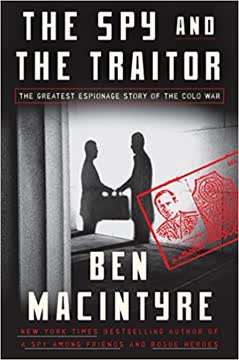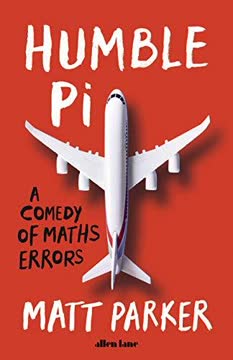Key Takeaways
1. Ireland's Celtic Tiger: A Mirage of Prosperity Built on Unsustainable Foundations
"The reality that Ahern's governments made damn sure that the wealth of the guys in the tent was not redistributed anywhere does not mean that this statement was insincere."
Economic miracle deconstructed. The Celtic Tiger, Ireland's period of rapid economic growth from the 1990s to the 2000s, was hailed as a model for developing economies. However, this prosperity was built on shaky foundations:
- Foreign investment: Attracted by low corporate tax rates and access to EU markets
- Property boom: Fueled by easy credit and speculation
- Financial services sector: Grew rapidly with lax regulation
Underlying weaknesses. Despite the appearance of success, the Irish economy had fundamental flaws:
- Over-reliance on construction and property sectors
- Neglect of indigenous industries and innovation
- Widening wealth gap between rich and poor
- Unsustainable public spending funded by property-related taxes
2. The Illusion of Wealth: Property Bubble and Reckless Banking
"If you'd spent €1 million buying houses in Dublin in 1994, and sold them twelve years later, you'd have made almost €4.2 million profit without lifting a finger."
Property mania grips Ireland. The Irish property market experienced an unprecedented boom, driven by:
- Easy credit from banks
- Tax incentives for property development
- Speculation and "flipping" of properties
This led to:
- Massive overvaluation of properties
- Overbuilding, resulting in "ghost estates"
- Dangerous levels of personal and corporate debt
Banking sector recklessness. Irish banks, particularly Anglo Irish Bank, engaged in increasingly risky practices:
- Concentrated lending to a small group of property developers
- Reliance on short-term borrowing from international markets
- Creative accounting to hide true financial positions
3. Political Corruption and Cronyism: The Rot at the Heart of Irish Governance
"Fianna Fáil ended up spending €330 million of public money to subsidise the building of hotels. The only effect was to make the hotel trade unviable."
Culture of impunity. The Irish political system, dominated by Fianna Fáil, fostered a culture where:
- Politicians accepted cash payments from businessmen
- Developers received favorable treatment and tax breaks
- Regulatory bodies were staffed with political appointees
Revolving door. There was a constant flow of individuals between:
- Government positions
- Regulatory bodies
- Banks and property development companies
This created conflicts of interest and a reluctance to enforce regulations or challenge the status quo.
4. Failure of Regulation: How Authorities Turned a Blind Eye to Financial Misconduct
"The Central Bank, which regulated the system throughout most of the relevant period, would claim that its job was to make sure that the banks were solvent, and that issues like tax evasion were not really its business."
Regulatory capture. Irish financial regulators were ineffective due to:
- Close relationships with the institutions they were meant to oversee
- Ideological belief in "light-touch" regulation
- Fear of damaging Ireland's reputation as a business-friendly environment
Willful ignorance. Regulators often:
- Ignored warning signs of financial misconduct
- Failed to use their existing powers to intervene
- Accepted flimsy explanations from banks and financial institutions
This created an environment where risky and even fraudulent practices could flourish unchecked.
5. The Cost of Success: Growing Inequality and Social Strain in Celtic Tiger Ireland
"The greatest shame of the boom years was the abject failure to get rid of consistent poverty."
Widening wealth gap. Despite overall economic growth:
- Top 1% of population held 34% of wealth (excluding property)
- Consistent poverty remained at high levels
- Middle class struggled with high costs of living and debt
Social consequences. The boom created:
- Housing affordability crisis
- Strain on public services due to rapid population growth
- Loss of community in rapidly expanding urban areas
- Increased stress and time pressure on workers
The government's focus on economic growth at all costs meant that social issues were often neglected or exacerbated.
6. Cultural Identity Crisis: Ireland's Struggle with Rapid Globalization
"Ireland was young, buoyant and energetic, and to those who complained that older spiritual values were being lost, the ready answer was that having a job and a house and a choice about staying in your own country can be pretty spiritually uplifting too."
Identity in flux. Rapid economic change led to:
- Decline of traditional Irish culture and values
- Embrace of consumerism and materialism
- Tension between global influences and local traditions
Cultural expressions. The boom period saw:
- Rise of "Celtic Tiger" literature and art
- Commodification of Irish culture for global markets
- Struggle to articulate new Irish identity in a globalized world
This cultural shift left many Irish people feeling disoriented and disconnected from their roots.
7. The Aftermath: Lessons from Ireland's Economic Collapse
"The Irish already had their own gentry. They didn't need them to start thinking they were kings."
Economic devastation. The collapse of the property bubble and banking crisis led to:
- Massive unemployment and emigration
- Government bailout of banks, leading to huge public debt
- Austerity measures impacting public services and social welfare
Lessons learned (or not). The crisis exposed:
- Dangers of over-reliance on specific economic sectors
- Need for effective regulation and oversight
- Importance of sustainable economic development
Path forward. Ireland's recovery depends on:
- Diversifying the economy
- Rebuilding trust in institutions
- Addressing social inequalities exacerbated by the boom and bust
The Irish experience serves as a cautionary tale for other countries about the perils of unchecked economic growth and regulatory failure.
Last updated:
FAQ
What's Ship of Fools about?
- Critique of the Celtic Tiger: The book examines the rise and fall of the Irish economy during the Celtic Tiger years, focusing on how stupidity and corruption led to its collapse.
- Key Figures and Events: It discusses influential figures like Bertie Ahern and Seán Dunne, and the role of reckless banking practices and property speculation.
- Historical Context: O'Toole provides a historical backdrop, illustrating how Ireland's past shaped its present economic decisions and the eventual fallout.
Why should I read Ship of Fools?
- Insightful Analysis: The book offers a deep dive into the factors that led to the economic collapse, essential for understanding modern Irish history and economics.
- Engaging Writing Style: O'Toole combines personal anecdotes with rigorous analysis, making complex economic concepts accessible and engaging.
- Lessons for the Future: It provides valuable lessons about the dangers of unchecked capitalism and the importance of ethical governance, relevant beyond Ireland.
What are the key takeaways of Ship of Fools?
- Corruption and Stupidity: The collapse of the Celtic Tiger was not just a financial failure but a moral one, driven by corruption and a lack of accountability.
- Government's Role: O'Toole critiques the government's failure to regulate the banking sector and its complicity in fostering a culture of greed and speculation.
- Social Inequality: The book highlights the growing divide between the wealthy elite and the average citizen, questioning the sustainability of such inequality.
What are the best quotes from Ship of Fools and what do they mean?
- “We used up all the wealth we had to build a ship for fools and mad.”: This quote encapsulates the idea that the economic boom was built on unsustainable practices.
- “The magic of the market had turned Europe’s Cinderella into a glittering princess.”: O'Toole critiques the belief that free-market policies alone can lead to prosperity.
- “The government turned itself into a junkie, injecting itself every day with the narcotic of easy money from the property bubble.”: This metaphor describes the dependency of the Irish government on unsustainable profits from the property market.
Who is the author of Ship of Fools?
- Fintan O'Toole: A prominent Irish journalist and author known for incisive commentary on Irish politics and society.
- Background in Journalism: He has written extensively for various publications, including the Irish Times.
- Critical Acclaim: O'Toole's work has received numerous awards, establishing him as a key figure in contemporary Irish literature and political discourse.
How does Fintan O'Toole use historical context in Ship of Fools?
- Historical Contextualization: O'Toole places the Celtic Tiger within a broader historical narrative, linking past injustices and economic policies to present outcomes.
- Understanding Economic Behaviors: He suggests that understanding past economic behaviors is crucial for interpreting current events.
- Lessons from History: The historical analysis serves as a cautionary tale for future economic policies and governance.
How does Ship of Fools address the role of the government in the economic crisis?
- Failure to Regulate: O'Toole argues that the government failed to implement necessary regulations to control the property market.
- Tax Incentives for Developers: The book discusses how government-provided tax incentives encouraged reckless building and investment.
- Populist Politics: O'Toole critiques the populist nature of Fianna Fáil, suggesting that short-term gains were prioritized over long-term stability.
How does Fintan O'Toole characterize the banking sector in Ship of Fools?
- Culture of Recklessness: The banking sector is portrayed as having a culture where profit motives overshadowed ethical considerations.
- Complicity in Corruption: O'Toole highlights the complicity of banks in corrupt practices, including the manipulation of financial records.
- Failure of Oversight: The book discusses the failure of regulatory bodies to adequately oversee banking practices, leading to a systemic collapse.
What role does personal debt play in the narrative of Ship of Fools?
- Rising Personal Debt Levels: Personal debt levels skyrocketed during the Celtic Tiger years, with many individuals taking on unsustainable mortgages.
- Wealth Transfer: This debt represented a transfer of wealth from ordinary workers to property developers and banks.
- Consequences of Debt: O'Toole warns of the traumatic consequences for individuals who bought homes at inflated prices.
What are the societal implications discussed in Ship of Fools?
- Growing Inequality: O'Toole emphasizes the widening gap between the wealthy and the poor, questioning the sustainability of such disparities.
- Public Disillusionment: The actions of the elite and government led to widespread disillusionment among the populace.
- Moral Responsibility: O'Toole argues for a collective moral responsibility to address these inequalities.
How does Ship of Fools relate to current economic issues?
- Relevance to Global Trends: The themes of corruption, inequality, and the failures of capitalism resonate with current global economic challenges.
- Lessons for Policymakers: O'Toole's analysis serves as a cautionary tale, emphasizing the need for ethical governance and accountability.
- Reflection on Society: The book encourages readers to reflect on their own society's values and the importance of inclusive economic growth.
What does Fintan O'Toole suggest about the future of Ireland post-Celtic Tiger?
- Need for Reflection: O'Toole emphasizes the importance of reflecting on the past to build a more sustainable future.
- Potential for Renewal: He suggests that the crisis presents an opportunity for Ireland to redefine its values and priorities.
- Call for Civic Engagement: The book advocates for greater civic engagement and accountability, urging citizens to shape the future of their country.
Review Summary
Ship of Fools is a scathing critique of Ireland's Celtic Tiger era, exposing corruption, cronyism, and governmental incompetence. O'Toole argues that Ireland's economic boom was built on unsustainable practices and squandered opportunities. He highlights the lack of regulation, tax evasion, and a culture of impunity that led to the country's economic collapse. While some readers find the book depressing, many praise O'Toole's insightful analysis and clear writing style. The book serves as a warning about the dangers of unchecked capitalism and the importance of strong democratic institutions.
Similar Books
Download PDF
Download EPUB
.epub digital book format is ideal for reading ebooks on phones, tablets, and e-readers.










